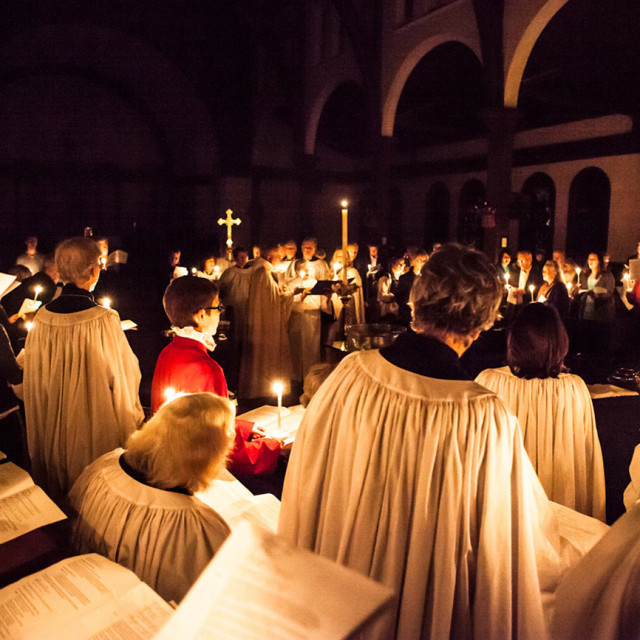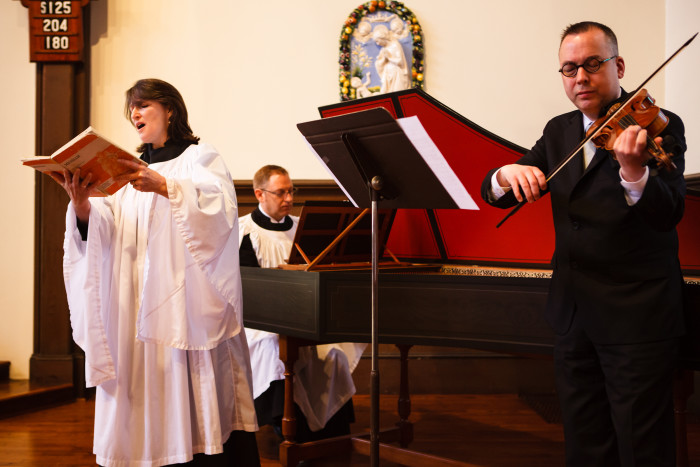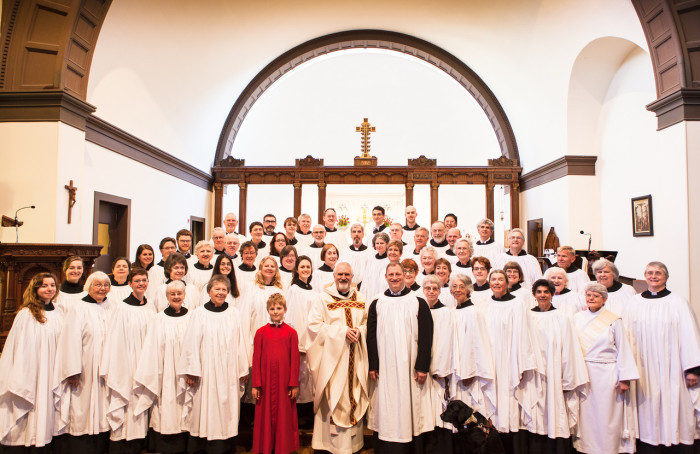Music at St. Mark's


“Those who sing pray twice.”
Ever since the Reverend George E. Swan trained the first vested choir at St. Mark’s in 1895, music has been central for those who worship here.
Our commitment to music and liturgy is not an end in itself. Those who offer music in this place give praise and glory to God with heart and voice and help the assembly encounter the eternal. Music is a vehicle that connects the human soul to the Divine. It brings consolation and healing, supports hope, encourages faith, and, in the Hebrew phrase tikkun olam, it repairs the world, helping to make the world a better place. As Leonard Bernstein said, “[…our reply to violence: to make music more intensely, more beautifully, more devotedly than ever before.”

Music is and always has been an integral part of the worship and spiritual life of St. Mark’s. In addition to the choirs, instrumentalists and soloists are invited to perform throughout the year. Saint Mark’s Berkeley is known for its distinguished music program that graces our services, and lifts the spirits of parishioners and visitors alike. An intergenerational group of choristers comprises the Saint Mark’s Choir, which sings the services for Sunday Choral Eucharists (10:00 a.m. Sundays), Feast Days, and special services such as Evensong and Lessons and Carols, typically from August to June.



Musical Rendering of the Liturgy
The purpose of music at Saint Mark’s is, quite simply, the musical rendering of the Liturgy to help all people who come within our walls encounter the Divine. A churchgoer at St. Mark’s will hear plainsong chanted by the clergy, mass settings and motets sung by the choir, hymns sung by the congregation, and voluntaries played on the organ. The repertoire is extremely wide-ranging, from medieval chant to the most compelling and beautiful music being written today. On a given Sunday, one might hear organ music by Sweelinck, Bach, Mendelssohn, Widor, or Messiaen; choral mass settings by Palestrina or Howells; psalm singing in either Gregorian or Anglican chant; and choral motets by Palestrina, Handel, Mozart, Brahms, Duruflé, or MacMillan.

